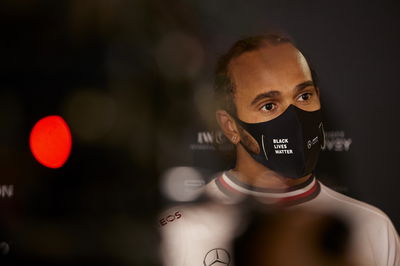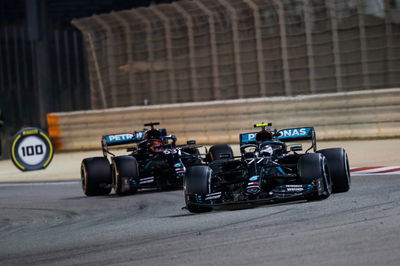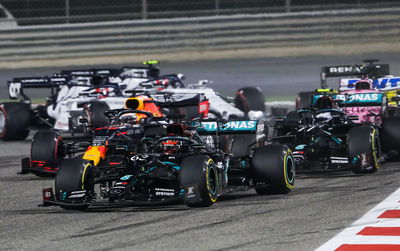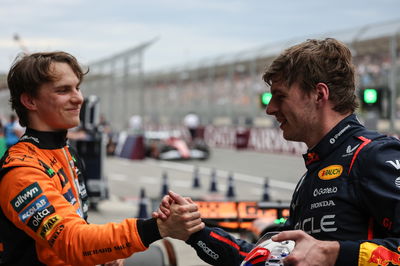The hurdles F1 champion Hamilton must pass in race to return for Abu Dhabi GP

Formula 1 world champion Lewis Hamilton faces a race against time to be fit in his bid to return to action at the season-ending Abu Dhabi Grand Prix.
After testing positive for COVID-19 last Monday, Hamilton is currently recovering and is seven days into 10 days of strict mandatory self-isolation in Bahrain, having missed the Sakhir Grand Prix with George Russell standing in for him at Mercedes.
Mercedes F1 boss Toto Wolff, who admitted over the weekend that Hamilton was “not great” as he bid to return to full health, said that the seven-time world champion will return to his W11 this weekend providing he tests negative in time, which is the first major obstacle he must pass.
“I think if Lewis recovers, and is getting better every day, and he’s been considered COVID free, negative, then he will be in the car,” Wolff confirmed after Sunday’s Sakhir Grand Prix.
Should Hamilton return a negative test, the next hurdle comes in the shape of incredibly tight restrictions on all arrivals into Abu Dhabi who face a mandatory 14-day quarantine period.
F1 personnel have been granted an exemption from this rule with the entire paddock due to travel to Abu Dhabi on Monday ahead of this weekend’s race.
There is scope for Hamilton to travel by private jet, although he would require special government dispensation in order to do.
“The main part with all of this has always been complying with the respective governments, laws and regulations,” F1 race director Michael Masi explained.
“So it's very much a decision for the Bahraini health authorities to determine if Lewis is fit and complies with their regulations, and then further for the Abu Dhabi authorities to determine their criteria.
“So it's effectively two government entities that need to determine entry criteria. If he meets the entry criteria of the respective governments and then further complies with the testing protocol from an FIA perspective, in being tested negative prior to entering the paddock, then there's no problems from our perspective."

Assuming Hamilton is fit to travel, he would have to take part in at least one practice or qualifying session to enable him to contest Sunday’s race. A similar scenario occurred when Nico Hulkenberg substituted for Lance Stroll at the Eifel Grand Prix in October, with the German only stepping into Stroll’s Racing Point car in time for qualifying.
“As long as the driver participates in a practice session or qualifying, they’re permitted to race,” Masi said. “So technically, here and now, a driver only has to fulfil one of those criteria.
“They couldn’t just turn up and race as their only thing, they would have to do one of the practice sessions, be it free practice or qualifying practice beforehand.”
Hamilton will have to complete a 24-hour period of isolation upon arrival in Abu Dhabi before he is permitted entry to the F1 paddock, meaning the very latest he could arrive into the capital of the United Arab Emirates would be 5pm on Friday, with qualifying scheduled to take place at that time the following day.
If this is not possible, then Russell would be given a second chance to claim his first grand prix victory by once again deputising in Hamilton’s Mercedes after he suffered late heartbreak in Bahrain having dominated much of the Sakhir GP.
Should Hamilton make it in time to compete in qualifying, then Russell would remain at Williams, with Jack Aitken returning to his usual reserve driver role for the Grove squad.
In the event of a mid-weekend arrival for Hamilton, Mercedes could in theory run its reserve driver Stoffel Vandoorne on Friday alongside Bottas before the reigning world champion returns to the cockpit of his car for final practice and/or qualifying.
That would avoid any disruption to Russell and Williams’ weekend and also give Vandoorne the opportunity to get behind the wheel of Mercedes’ double-championship-winning W11 after being left “gutted” to have been overlooked in Bahrain.












